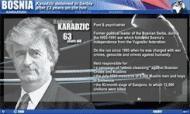The International Monetary Fund may soon lack the money to bail out an ever growing list of countries crumbling across Eastern Europe, Latin America, Africa, and parts of Asia, raising concerns that it will have to tap taxpayers in Western countries for a capital infusion or resort to the nuclear option of printing its own money.

IMF’s work in countries such as Turkey is only just beginning
The Fund is already close to committing a quarter of its $200bn (£130bn) reserve chest, with a loans to Iceland ($2bn), Ukraine ($16.5bn), and talks underway with Pakistan ($14.5bn), Hungary ($10bn), as well as Belarus and Serbia.
Neil Schering, emerging market strategist at Capital Economics, said the IMF’s work in the great arc of countries from the Baltic states to Turkey is only just beginning.
“When you tot up the countries across the region with external funding needs, you get to $500bn or $600bn very quickly, and that blows the IMF out of the water. The Fund may soon have to start calling on the West for additional funds,” he said.
Brad Setser, an expert on capital flows at the Council for Foreign Relations, said Russia, Mexico, Brazil and India have together spent $75bn of their reserves defending their currencies this month, and South Korea is grappling with a serious banking crisis.
“Right now the IMF is too small to meet the foreign currency liquidity needs of the larger emerging economies. We’re in a dangerous situation and there is the risk of extreme moves in the markets, as we have seen with the Brazilian real. I hope policy-makers understand how serious this is,” he said.
The IMF, led by Dominique Strauss-Kahn, has the power to raise money on the capital markets by issuing `AAA’ bonds under its own name. It has never resorted to this option, preferring to tap members states for deposits.
The nuclear option is to print money by issuing Special Drawing Rights, in effect acting as if it were the world’s central bank. This was done briefly after the fall of the Soviet Union but has never been used as systematic tool of policy to head off a global financial crisis.
“The IMF can in theory create liquidity like a central bank,” said an informed source. “There are a lot of ideas kicking around.”
Read moreIMF may need to “print money” as crisis spreads

